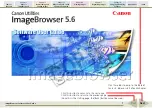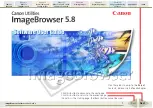
Advanced Standalone Mode for EWS MIC 2/8 (96kHz or ADAT Firmware) and PHASE 88 Rack FW
Advanced Standalone Mode for
EWS MIC 2/8 (96kHz or ADAT Firmware since Version 1.13.13.31) and
PHASE 88 Rack FW (since Firmware Version 1.17.13.31)
If the device is powered up without any 1394 FireWire™ connection established, is starts in
the so called “Standalone Mode”.
There are two main features that can be used within this mode.
1. Standalone AD/DA Converter
The device uses default settings on startup, that are defined by the Control Panel via 1394.
These settings are:
- samplerate
- signal routing
- hardware mixer settings
- Microphone Inputs (only PHASE88 Rack)
These settings are stored into the device by pushing the “store” button in the scenes dialog
of the control panel. Additionally there is also a special dialog to set the “default routing”.
Here you can specify which input signals are routed to the any outputs in standalone mode.
You can choose between any input signal or the digital mixer master output signal. In
standalone mode, the device automatically detects any external digital clock and signal
source that is connected and syncs up to this source. The sample-rate changes accordingly
to the external clock connected to the device. To use S/PDIF-In or ADAT-In together with
WordClock synchronization with the EWS MIC 2/8 devices, the WordClock signal always has
highest priority. If no digital signal has been connected to the EWS MIC 2/8 device the
internal clock generator will supply the clock. For the PHASE 88 Rack FW the WordClock
input signal has to be connected before switching on the device first. Otherwise the clock will
be extracted by the digital input signal (S/PDIF). Again, if no digital signal is connected to the
PHASE 88 Rack FW the internal clock generator will supply the master clock.
The LEDs on the backside display the sync state of the device.
Ext. Clk
:
[on]
the device is synced to an external clock source
[off]
the device is synced internally
Word-Clk
:
[on]
WordClock is used as external clock source
[off]
digital in (ADAT or S/PDIF) is used as external clock source
Sync:
[on]
the device has successfully synced to a clock
[blink]
there is a problem with the sync state
IEEE-1394:
[on]
the device is controlled via 1394 (no standalone mode)
[off]
the device has no established connection via 1394
[flashing]
“MIDI Remote Mode” is active (see 2.)





















